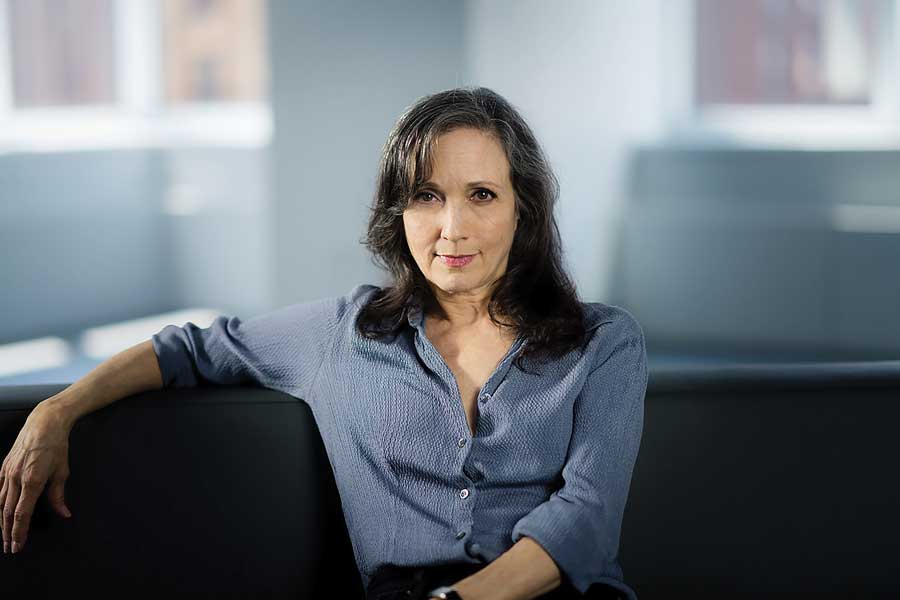Bebe Neuwirth, Emmy-winning star of “Cheers” and “Frasier” and Tony-winning star of Chicago, A Chorus Line, Sweet Charity, and more, will next play the lead in Adam Bock’s A Small Fire, about a woman gradually losing the use of her senses, at Philadelphia Theatre Company, Oct. 18-Nov. 10.
EMMA FORGIONE: What drew you to this project and this character?
BEBE NEUWIRTH: There’s something about the way Adam Bock has written this, with such bare bones. It’s such a spare and simple, exquisite style, which makes it quite theatrical. Simple is hard. Extravagant is like, “Oh, look at the flashing lights. Look at this, look at this.” But to make something simple… Aaron Copland or the Beatles make a gorgeous melody in three notes, and you just feel so much. I think that Adam’s achieved that in this, and all four of the characters are so interesting and surprising. You want to be surprised onstage. When you go to the theatre, you want to not guess what’s going to happen next.
Have you been doing any special preparation for the part, particularly around the idea of a character losing her senses?
Just looking at the lines. I’d like to see what happens when we start living in that world, which you really can’t do until you’re in the rehearsal room with the director and your fellow actors. I studied Meisner, and that’s one of the hallmarks of Meisner: Listen and respond and work off the other person, work off the behavior. I think it’s dangerous to make decisions beforehand.
A lot of people know you from television, but growing up as a dancer I knew you from your dance career. Can you talk a bit about starting the Dancer’s Resource?
What happened was, about 10 years ago, I had my first hip replacement. And it was—well, this is an understatement, but it was emotionally traumatic. Injuries are traumatic for anyone. The pain of arthritis is really bad and chronic pain is a very, very difficult thing for anyone to deal with. But because a dancer’s body is their instrument, I think there’s a particular kind of emotional pain that a dancer feels when they are injured. And the life of a dancer is such that we are the bottom of the food chain in the performing arts. We are constantly reminded that we are the most replaceable, we make less money than anyone else, we are less likely to have health insurance than anyone else. I was on the board of trustees for the Actors Fund and I thought we should have a program just for dancers who are injured, to help them get through all these significant and deep and profound challenges and problems they face when they’re injured.
The first thing I wanted to do was get a safe space for dancers to have some kind of a group therapy, so that they can feel what they’re feeling, explore what they’re feeling, so that they can move through what they’re feeling. Because one of the problems when you’re an injured dancer is that you have to keep it a secret. You don’t want people to know that you’re the weak one in the herd.
You’ve been working in theatre for decades now. Are there any big trends in the business that excite you?
Trends come and go, but storytelling is storytelling. This is my private theory about modern theatre: Since human beings gathered in tribes, we gathered around the fire and told stories. And in the beginning, the stories were things like dispensing information like, “This plant is poisonous, this plant makes you feel good. Good mammoth hunting that way. Stay away from the saber-toothed tigers.” It’s all information, and then it all grew from there. We tell stories around the fire, and there is a place for everyone at the fire. So the person who is listening to the story is just as important as the person telling the story, who’s just as important as the person who’s beating out the rhythm, who’s just as important as the person underscoring it with a chant to the side, and just as important as the person who is wiggling on the sidelines to it. It’s a communal event, and it’s primal. Our modern theatre, our contemporary theatre, is an extension of that. We are always gathering at the fire and telling our stories.
What do you like to do when you aren’t onstage?
I throw pottery. If I’m not expressing in some way, if I’m not being creative in some way, I just feel lousy. I get the blues. I realize it’s very important for me to just go to the pottery studio and make a pinch pot, like a third grader. It doesn’t matter. As long as I’m making something, I feel better.
Is there anything you haven’t done you’d like to try?
When we first got on the phone, and you said, “Well, you’ve done everything,” I was going to say, “Except stand-up comedy.” You couldn’t pay me enough to try stand-up comedy.
Any good shows or performances you’ve seen recently?
I saw my friend, Erin Hill, at Joe’s Pub. She’s a world-class harpist. She writes these beautiful, mystical, science-fiction pieces. And then she rocks out with “Ruby Tuesday,” then Bruce Springsteen. I mean, I love rock ’n’ roll.
Any favorite bands?
I love the Beatles, Led Zeppelin, Neil Young. Tom Waits is a god to me. I love AC/DC.
As you’re working in Philly, anyone there you’d like to give a shout-out to?
Philly PAWS, their animal rescue place. One of our three rescue cats is from there.


